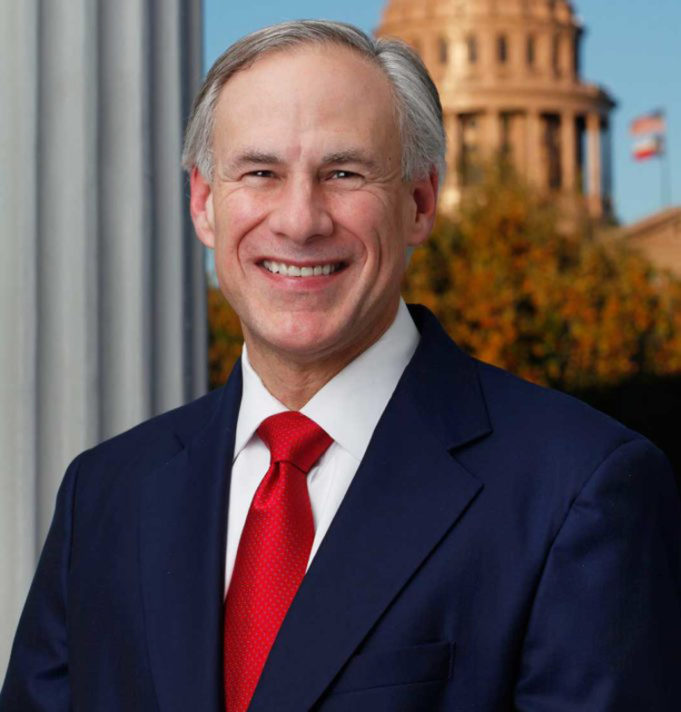“Texans, as we gather tonight, I can tell you the state of our state is brimming with promise,” said an upbeat Gov. Greg Abbott during the annual State of the State address recently.
Amid a largely uncontrolled pandemic that has caused the deaths of nearly 40,000 Texans and continues to batter the local economies for travel, hospitality, and service, Abbott unveiled five emergency items for the 2021 Texas Legislative Session that began Jan. 12 and ends May 31. Every two years, state representatives, senators, and other state officials convene to draft, revise, and ultimately pass legislation that governs life for Texans.
The governor’s priorities include expanding broadband internet access, changing the monetary bail system, ensuring “election integrity,” protecting businesses from civil suits if those establishments operated during the pandemic, and protecting police departments from what Abbott has called “police defunding.”
Expanded Broadband Access
“We are also closing the digital divide for Texas students,” Abbott said. “The state partnered with school districts to provide internet connectivity and e-learning devices for schools and for students. Investments like these are a victory — a victory for teachers, for students, and for parents as we provide our children with a quality education, regardless of their ZIP code.”
The lack of access to the internet, known as the digital divide, has compounded educational inequities in Fort Worth. During the early weeks of the pandemic in March and April, school leadership focused on providing Wi-Fi hotspots to underserved communities that did not have access to the internet. The nonprofit think tank Rand Corporation found that “30% of teachers in high-poverty schools reported that all or nearly all of their students had access to the internet at home, compared with 83% of teachers in low-poverty schools.”
No district was prepared to deploy technology to all of their students in such a short timeframe last year, said Steven Poole, executive director at the United Educators Association (UEA), the union that represents North Texas teachers.
“Every school district, including Fort Worth’s, was scrambling to find tablets and hotspots,” he said. “There was a limited supply. That hamstrung school districts from the get-go. Teachers saw four or five siblings having to share one computer or hotspot. For those families, the scheduling involved was a nightmare. Parents did their best to have that homeschool experience while they are trying to work themselves. If we are going to say that internet access is a vital part of work and school, then it should become a public commodity and not a private utility.”
Election Integrity
“The governed consent should never be in doubt,” Abbott said. “That is why the integrity of elections is so essential to our democracy. One thing that all of us should agree on, whether you are a Republican, a Democrat, or an Independent, is that we must have trust and confidence in the outcome of our elections.”
Abbott was referring to voter fraud, which, according to the law and policy institute Brennan Center for Justice, remains “infinitesimally small” in the United States.
Indicted State Attorney General Ken Paxton (who currently faces multiple felony charges, an ongoing FBI investigation, and a lawsuit that alleges he retaliated against AG whistleblowers) has long trumped up the supposed dangers of voter fraud. Paxton told a crowd of Donald Trump supporters on Jan. 6 to never “quit fighting” the landslide victory of President Joe Biden. Many Trump supporters continue to believe that voter fraud led to Trump’s electoral defeat, despite the absence of evidence to support that claim. Members of that large crowd subsequently breeched the United States Capitol and murdered Capitol Police officer Brian Sicknick.
“We see little to no evidence of voter fraud or any of the associated arguments that partisan conspiracy theorists [like Paxton] whip up,” said Charlie Bonner, communications director for the nonpartisan grassroots group MOVE Texas. “When they make those arguments, real people do get hurt when real voters lose rights. We have to push back on that.”
Changing the Monetary Bail System
“Public safety is also at risk because of a broken bail system,” Abbot said. “A broken bail system that recklessly allows dangerous criminals back out onto our streets.”
In January, Abbott acknowledged that there are poor people who are stuck in jail for low-level crimes “simply because they have no money” for bail. Once someone has been arrested, most counties in Texas require that bail be posted as a condition of release. Bail is basically a deposit paid in full by the defendant (cash bail) or by a bail bond company (typically for a 10% fee) that motivates defendants to return for their respective court dates. Bail bond companies represent a $14 billion industry in this country.
Lawsuits have recently forced Dallas and Harris counties to address longstanding problems with their bail systems, and Tarrant County may be next. The average bail set in Tarrant County is $4,785.09, according to the county, meaning the current system may violate equal protection clauses set out by the U.S. Constitution (“ Criminalizing Poverty or Ensuring Justice?” July 2020).
Last summer, a spokesperson for the trade group Professional Bondsmen of Texas told us that the problem is not with the bond and bail system but rather the “process of moving large numbers of people efficiently and cost-effectively through the jails of our largest counties without taking advantage or losing track of anyone, including poor people. Therefore, we need to set up procedures that will address the problem and at the same time protect the rights of the poor.”
Protections for Private Businesses
“I am asking the legislature to quickly get a bill to my desk that provides civil liability protections for individuals, businesses, and health-care providers that operated safely during the pandemic,” Abbott said.
Under Abbott’s leadership, Texas was one of the first states to reopen. The governor directed retail stores to reopen in late April and provided steps for reopening the rest of the economy soon after. The resulting spikes in COVID-19 infections and deaths caused the governor to backtrack parts of his reopening plans, but Texas effectively remained one of the most open states throughout 2020.
Texas Restaurant Association CEO Emily Knight said, “COVID-19 has devastated the restaurant industry, but with tools like liability protections, we can work together to ensure the Texas economy recovers stronger than ever.”
The National Federation of Independent Business similarly supports the governor’s proposed protections for small businesses.
The National Restaurant Association said food-service sales were $240 billion below 2020 pre-pandemic forecasts and more than 110,000 restaurants and bars were temporarily or permanently closed due to the pandemic.
Punishing Cities that “Defund the Police”
Speaking at Fort Worth’s Bob Bolen Public Safety Complex Administration in April, Abbott unveiled a plan that has become an emergency legislative item.
“Any city in the state of Texas that defunds law enforcement will have their property tax revenue frozen as of that time,” Abbott said at the press briefing.
The stern warning came days after Austin City Council voted to reallocate 34% of police funds toward social services and to reorganize existing police services. Abbott’s efforts to redistribute police funds are seen as an attack on public safety. Fort Worth police department’s 2020 budget was $352,893,268, and a growing number of locals of all political persuasions are questioning if allocating one-third of the city’s general budget to policing makes fiscal or ethical sense.
Without mentioning his specific plans to combat “police defunding” during the State of the State address, Abbott said, “We cannot ignore the need to improve policing. It helps our law enforcement officers do a better job. It makes our communities safer. In this session, we must provide law enforcement with the tools and the training they need to ensure the safety that their communities deserve.”
Democratic Party Response
Speaking on behalf of Democratic state legislators, State Rep. Chris Turner, whose District 101 represents much of Tarrant County, said the governor should not be in the business of defunding cities that reallocate police funding.
“We shouldn’t be in the business of trying to make budget decisions for the city of Austin or any other city in the state of Texas,” he said. “That’s what we have city councils for. The legislature only meets every other year, so we have a lot to do in a short period of time. One of the most pressing priorities facing Texas, and this pandemic has really exposed it, is a lack of access to health care for too many Texans. We have the highest rate of uninsured of any state in the nation and the highest number of uninsured of any state in the nation. We’re elected to deal with issues for the entire state, and we have a lot of those issues to deal with: public education, higher education, health care, the economy, [and] criminal justice issues.”












